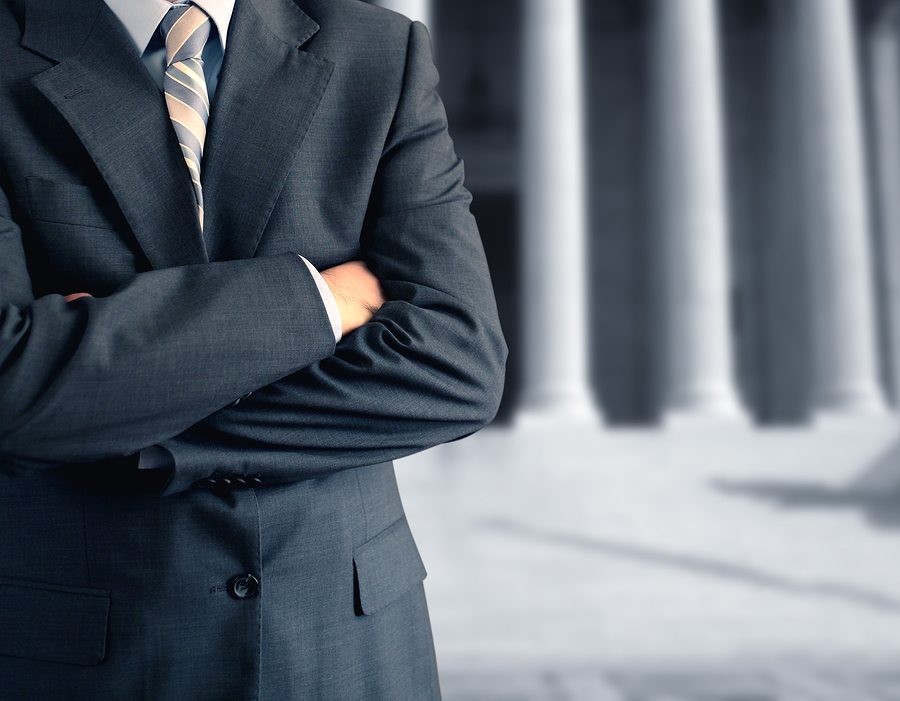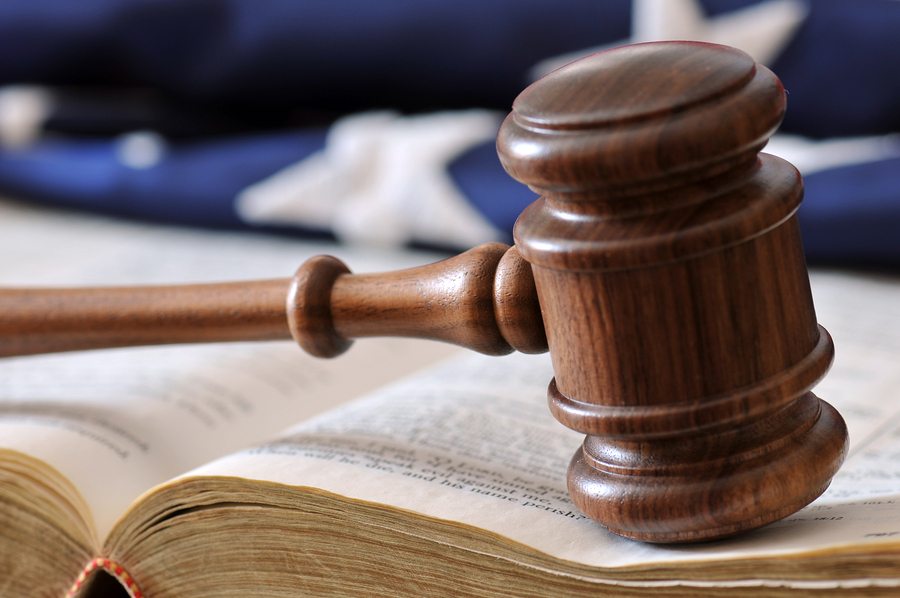Going through all of the stages of the legal process can be a harrowing experience if one does not know the proper steps to take before, during and after a trial. However, preparation can be difficult or impossible if one does not fully understand the process. When facing a process with the potential to dramatically alter a person’s life, such as a criminal trial, there truly cannot be enough thought and energy put into the preparation period.
The old adage “He who represents himself has a fool for a client” is often quoted in criminal courts because self-representation in a criminal matter is fraught with legal pitfalls. No matter how small or simple an allegation may seem, there are countless procedures and rules that must be taken into consideration in order for the process to run smoothly. Even when the person charged with a crime is a criminal defense attorney, seeking representation is the wisest choice because a trusted third party can provide the perspective needed to address the matter strategically. For the criminally accused, having a sounding board for the specific circumstances of a case is one clear advantage of retaining counsel for a trial. Another key advantage is avoiding emotional and personal bias that can affect the character of one’s analysis and strategy.
Work with a Utah Criminal Defense Lawyer You Are Comfortable With

Based on the information the attorney is told and that he or she can uncover, your attorney will formulate a legal strategy to defend against the criminal charges you face or to present your side of the story in a legal dispute. Once counsel has been retained, at your first meeting you should be open and honest with answering your attorney’s questions, and work to provide additional information. Under the Utah Court Rules, Rule 504, there’s guaranteed confidentiality in the matters discussed between client and attorney, barring certain exceptions determined by law.
This disclosure should include possession of key pieces of evidence, previously made statements to law enforcement, criminal background and all circumstances surrounding the case. Only with a complete and accurate picture of the matter can your attorney recommend an appropriate legal strategy. If you find it difficult or impossible to talk openly and honestly with your attorney you are likely hurting your defense.
Along the same lines, remember that, even if you have a public defender, your attorney is on your side. If you are given a public defender, but wish to have private counsel instead, that is your right. It is important to have an attorney you believe is working for you. Despite this, it is important to understand that it is perfectly normal for the entire trial strategy to be under your attorney’s control. While you might be able to give input, ultimately, your attorney is in charge of how to do the job you hired him or her to do. You always have the power to fire your attorney if you want, but that is not a power to be used lightly – and the court may not allow you to change attorneys too many times.
It is important to find an attorney you trust and can work with from the beginning. One of the worst things you can do in your own case is fail to trust your attorney with information. The best way to win a case is to make sure that there are no surprises for your attorney.
Experienced Attorneys Establish and Support a Narrative
Neither the judges nor the jury was present during the events that led to the charges. Evidence, witness testimony, expert opinions, and other statements are the only guides judges and juries have when making decisions. Therefore, it is not only important to provide them with the most complete account of what happened, but also to provide the context and narrative that ties the pieces of evidence together in a coherent manner.
Your attorney will work on your side of the story until all details are properly covered and accounted for. It is possible to submit your version of things in a sworn statement in order to avoid inaccuracies and to cover as much ground as possible before the trial begins. Whether you are attempting to establish an alibi or otherwise prove that conduct did or did not occur, evidence and documents are key tools for verifying information in your story and can mean the difference between freedom and a jail sentence. Working with an experienced attorney can increase the odds that every relevant document or other piece of evidence pertaining to your case will be assessed. A few examples of evidence that may come up in different kinds of cases:
- Vehicle registration and insurance documents.
- A title deed to a property.
- Tax returns from previous years.
- Bank statements or proof of payments.
- Law enforcement or police reports.
- Bullet casings or spent ammunition.
- Drugs allegedly recovered at the crime scene.
- Photos or videos recovered from a cellphone, computer, or social media account.
If you have any doubts about the relevance of evidence or witnesses you may have available, do not hesitate to ask your attorney. Defendants may sometimes think that everything in the world is relevant to their case, but sometimes a particular piece of information can be very important. Do discuss these kinds of topics with your attorney.
Prepare to Defend Against Criminal Charges

In any criminal legal matter, the defendant may or may not decide to take the stand to present his or her side of the story. However, before a criminal defendant takes the stand as a witness there are important legal and non-legal factors to consider. In some matters, the defendant’s testimony may be highly effective. Most of the time, though, defense attorneys warn you against testifying in your own defense, since it may open the door to information, character attacks, inconsistencies, and demonstrations of poor memory that would not have occurred if you did not testify. Ultimately, though, it is your right to testify in your own defense if you want to. It is illegal, though, to lie when testifying in your own defense, and may severely hurt your case. Just make sure to be open about your decision with your defense attorney. Almost nothing, except lying, can hurt your case more than surprising your defense attorney by testifying yourself.
An experienced Salt Lake City criminal defense lawyer can provide advice as to whether it would be wise or effective for the accused to testify. Furthermore, if it does appear likely that such testimony would be effective, your attorney can prepare you to present your side of the story in a clear and confident manner. After all, it is less likely others will believe your story if you do not present it in a confident and authentic way. Your attorney should spend plenty of time preparing you for this crucial part of the trial. And as with any legal proceeding, it is essential to present and conduct yourself in a serious manner, and show plenty of respect for the norms of the court at all times.
Prepare to Go to Court
Even if you are going to an arraignment or a preliminary hearing, or to trial itself, you should be prepared to enter the courtroom and act appropriately. Any time you appear before a judge, it is important to act respectfully. If you are directed to answer questions, always use phrases like, “Yes, Your Honor,” and “No, Your Honor.” Always listen to the judge’s instructions, and do not interrupt anyone. There may be times that a judge will ask you a question, but most of the time, if you have a lawyer with you, the judge will speak to your lawyer instead. Your time in the courtroom is not your time to get your voice or your objections heard – the whole point of hiring a lawyer is so they can do that for you.
Honestly, prepare for some frustration; it is scary and frustrating to be facing criminal charges, especially if you are innocent. You may want to do nothing but scream at the judge and the prosecutor, but it really is in your best interest to sit quietly and let your attorney do the work. Avoid commenting or calling out in response to things that are said. Remember that you are not an audience member.
If you think that something is unfair, wrong, or that a piece of information was missed, tell your attorney quietly. When you are in preliminary hearings or arraignments, you may have some opportunity to step out of the room and speak with your attorney in private, where you can voice your concerns. During trial, your attorney may be focused on the prosecution’s questioning, so it is important to work out with your attorney how you may pass notes during trial.
It is also important to look professional and calm during trial. The judge and jury will be watching you throughout the process, and it is important to come across well. That means that you should appear to court in clean, wrinkle-free clothes. During pre-trial hearings, if you are in jail, you may be brought into court in handcuffs and a jumpsuit, but the court should not be allowed to bring you in front of a jury in handcuffs. Men should wear a suit and tie, or at least a dress shirt and pants. Women should wear similar clothing, or a dress or skirt. Depending on what you have available to you, you should try to dress how you think a lawyer or professional would dress. Also, unless your attorney advises you otherwise, your hair and makeup should be plain and simple. If you have any visible tattoos, you may want to cover them. You may also want to remove piercings, if possible. Depending on the members of the jury, your attorney may have different advice, but these are good guidelines.
Possibly more important than the way you dress is the way you act. It is important to sit up straight and look like you are paying attention. Almost nothing seems guiltier than a defendant who does not seem to care that he or she is in court. Your day in court could change your life, so it is important to demonstrate to the judge and jury that you understand that.
The legal team of Overson Law LLC has the experience to represent you or a loved one before any Utah court. Call our firm at (801) 758-2287 to arrange a consultation free of charge and start preparing your defense today.






